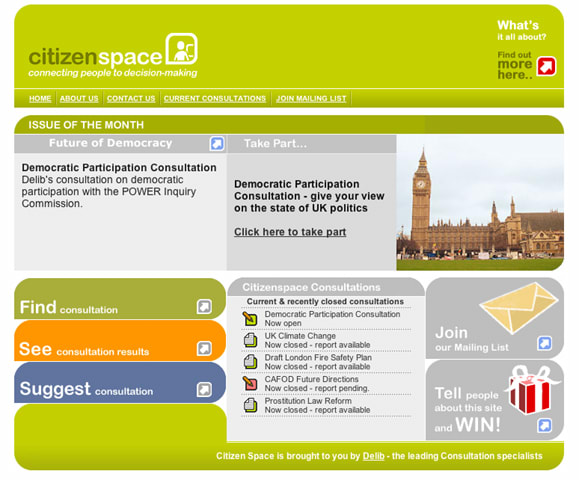On a Friday March afternoon in Bristol (UK), Delib founders Chris Quigley and Andy Parkhouse sat down with Delib director Ben Fowkes to lift the lid on the history of Delib as part of Delib’s new podcast series.
Listen now or read the summary below
Summmary
Founded 18 years ago, back in 2001, Delib has tracked – and arguably been a driving force behind – the positive influence of the internet on democracy, going against the grain of perceived wisdom that the internet is helping destroy democracy (for example, Facebook and the spread of fake news).
Delib’s unusual background in political satire, along with our involvement in some of the landmark moments in digital democracy history, including e-voting in 2002/3 and Barack Obama’s crowd-sourcing in 2008, provide some interesting context to how Delib evolved into the company it is now. Listen to the podcast at the bottom of this post, or for those who don’t have headphones to hand, here’s a quick summary of Delib’s history . . .
2001: Chris, Matt and Andy (Delib co-founders) set up a satirical website called Spinon.co.uk aimed at making fun of politicians during the 2001 general election – all out of our student house at Bristol University. Games like ‘Get to the Right of Jack Straw’, ‘Robin Cook’s Ethical Foreign Policy Simulator’ and ‘MP in a Blender’ make Spinon go viral and we have our 15 minutes of fame, whilst experiencing first-hand the internet’s potential effect on democracy.

2002-2003:we team up with BT and Accenture to help run the UK’s first e-voting pilots, where voters could vote in local elections using the internet, mobile phones and public internet kiosks.
2004-2008: Delib is formally set up as a company, and gets involved in the National e-Democracy Project, funded by John Prescott’s Office of the Deputy Prime Minister, testing the use of online games in democracy. During this time, Delib also develops and tests over 15 new digital democracy products including:
- aMap: an ‘argument visualisation’ product (online and offline) designed to help people engage in complex issues through structuring and visualising arguments around a three-tier ‘informal logic’ structure.
- Picture Poll: a survey tool that visualises the response to questions, allowing you to see how your position compares to other participants (via a two-axis grid matrix)
- Budget Simulator: a simulator-based consultation tool where the citizen has to allocate their Council budget based on their personal priorities. Variations include a cost-savings version, where the citizen has to try to make savings according to a set target.
- Election Alarm Clock: an SMS and email reminder service to help citizens never forget their local election date ever again!
- Dialogue App: a crowd-sourcing app designed for crowd-sourcing government policy. Famously used by the Obama administration.
- Ideas Tree: more idea crowd-sourcing, but this time with ideas visualised as a tree!
- PimpMyParty: a game-based one-off consultation for David Cameron’s Conservative Party which ended up with 10,000’s responses, and nearly getting us sued by Viacom (for Pimp My Ride brand infringement). –
- Citizen Space: Delib’s flagship policy consultation platform now used by 120+ government organisations around the world.


2008: Delib collaborates with NAPA in Washington DC to run President Obama’s first crowd-sourcing processes, marking the start of the US Government’s OpenGov era.
2010: Delib works with the UK’s coalition government on their mass-scale crowd-sourcing processes ‘Your Freedom’ and ‘the Spending Challenge’, involving tens of thousands of ideas.
2012: Delib sets up Delib Australia / New Zealand and quickly acquires both Federal and State government customers.
2012-present: Delib doubles down on 3 core products – Citizen Space, Simulator and Dialogue – with a focus on building digital democracy infrastructure to improve and change how day-to-day democracy is run.